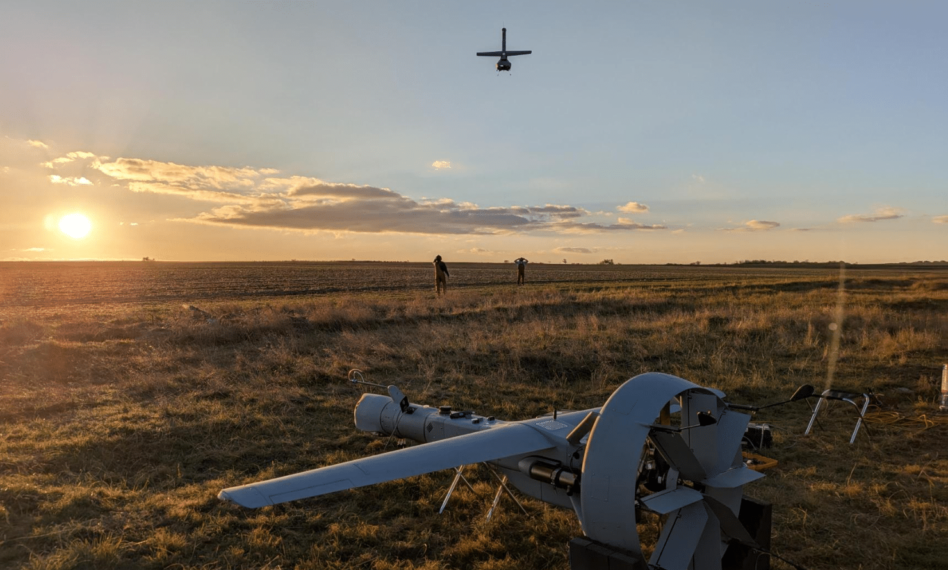We’ve brought you a lot of European news out of DSEI this week, so we thought on this lovely Friday, we’d take a quick hop over to the Indo-Pacific. Yesterday, Shield AI announced that they’ve signed a teaming agreement with Taiwanese defense prime Aerospace Industrial Development Corporation (AIDC).
The two companies say they will work together to “advance Taiwan’s sovereign defense capabilities, strengthen its aerospace industrial base, and enhance collaborative technological innovation.” Pretty lofty goals for the end of the week.
In particular, Shield and AIDC say that they’ll collaborate on “sustainment, training, autonomy integration, and other technical initiatives to ensure Shield AI’s products can be deployed, supported, and scaled in Taiwan.” Basically, sounds like AIDC will be Shield’s pathway to deployment on the island. 2027, here we come.
The race to automate: In case you’ve been living under a rock, Shield AI is a pretty big name in defense tech. The company was founded way back in 2015 (pretty much prehistoric around here) by brothers Brandon (an ex-Navy SEAL) and Ryan Tseng, as well as autonomy expert Andrew Reiter. The company focuses on building AI-powered autonomy for defense; Brandon has said he built Shield because of the crappy experiences he had on operations.
Shield AI has a few main products:
- Hivemind, the AI-powered autonomy brain behind everything that Shield does. It’s designed to work in denied or jammed environments and is platform-agnostic.
- A suite of sensors—including ViDAR and Tracker—for threat identification.
- A range of drones, including V-BAT, a tactical VTOL UAS plugged into Hivemind. It’s also designed to be upgradable and work well in the face of jamming and EW.
Cha-ching: Investors have got a real thing for the Tseng brothers and their company. Shield AI has raised, like, a shit-ton of money (technical term). Total funding is estimated at about $1.66B, according to Pitchbook data.
- Shield raised a strategic $240M “F-1” funding round back in March to scale its AI tools for enterprise, bringing valuation to $5.3B, according to Pitchbook.
- The company also raised a $200M Series F back in October 2023.
Shield AI’s main backers include Andreesen Horowitz (a16z), Riot Ventures, L3Harris, and the US Innovative Technology Fund.
Stick to the mission: It makes a lot of sense that Shield AI would want to expand its presence in Taiwan. The company said in its 2024 overview (titled 2024: A Year of Mission Impact) that it had (vaguely) “helped Taiwan and the USA deter China.” Back in April, the company was also put on China’s “unreliable entity list” for alleged “military technology cooperation with Taiwan.”
This, then, comes as confirmation of what China already believed to be true. And they aren’t the only company doing it: Back in August, Anduril officially opened an office in Taiwan (with a classically bombastic visit from Palmer Luckey), signed an agreement with National Chung-Shan Institute of Science and Technology (NCSIST), and promised speedy delivery of drones.
Friends in high places: AIDC—the largest defense prime in Taiwan, apparently—said in a statement that the partnership with Shield AI would mainly be about ramping up drone production using AIDC’s existing infrastructure. “Shield AI’s state-of-the-art mission autonomy and aircraft, such as their V-BAT, combined with AIDC’s decades of aerospace manufacturing experience, will strengthen Taiwan’s defense and deterrence capabilities and supercharge Taiwan’s local drone and aerospace industry,” an AIDC spokesperson said.
The statement also teased “additional announcements will follow in the coming weeks” out of the Indo-Pacific. To everyone who thought things would chill out after DSEI, sorry.

